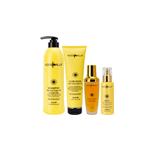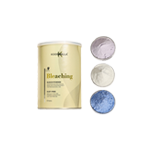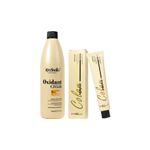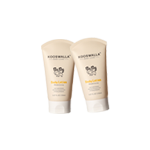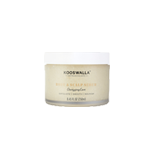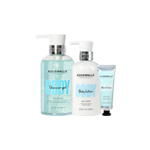Understanding Hair Loss: Causes, Prevention, and Treatment Options
Hair loss is a common concern for many individuals, affecting both men and women. While it can be a natural part of the aging process, various factors contribute to hair loss at different stages of life. Are you worried about losing a lot of hair after washing your hair? Or the changes brought about by postpartum?This article will discuss with you in depth and learn about our KooSwalla hair growth series.

Causes of Hair Loss:
1.Neurological alopecia:
Hair loss often increases when you are under excessive mental stress. The human body’s arrector pili muscles contract, the hair stands upright, the autonomic nerve or central nervous system function is disordered, the hair follicle papilla changes and malnutrition occurs, which leads to the inhibition of hair growth function, the hair enters the resting phase and hair loss occurs.
2.Androgenic Alopecia:
The most common cause of hair loss is hereditary. If your parents or grandparents experienced hair loss, there’s a higher likelihood that you may also be prone to it.
3.Nutritional Alopecia:
Hair is an external manifestation of physical condition. Malnutrition and abnormal metabolism of the body can cause changes in hair texture and color. Severe malnutrition can even lead to diffuse hair loss.
4.Endocrine Alopecia:
Hair growth is affected by a variety of endocrine hormones, so endocrine abnormalities often cause hair loss diseases, such as postpartum and menopausal hair loss.
5.Medical Conditions:
Certain medical conditions like thyroid disorders, autoimmune diseases, and alopecia areata can lead to hair fall. Consultation with a healthcare professional is essential to identify and address these issues.
Of course, these are only part of the reasons. In addition, excessive perming and dyeing of hair, or seasonal changes may cause hair fall. But we can still avoid some of the causes of them. Next, let’s learn how to prevent it.
Preventive Measures:
Healthy Lifestyle:
Adopting a healthy lifestyle with a balanced diet, regular exercise, and sufficient sleep can positively influence hair health.
Gentle Hair Care Practices:
Avoid harsh hair treatments, excessive heat styling, and tight hairstyles that can damage hair follicles. Use mild shampoos and conditioners suitable for your hair type.
Stress Management:
Chronic stress is linked to hair fall. Engage in stress-reducing activities such as yoga, meditation, or hobbies to promote overall well-being.
Avoid Smoking and Excessive Alcohol:
Smoking and excessive alcohol consumption can contribute to hair fall. Quitting these habits can have positive effects on your hair and overall health.
Treatment Options:
It is recommended that you use the KooSwalla hair growth series as your daily care. This series incorporates natural and organic ingredients to effectively promote hair growth.
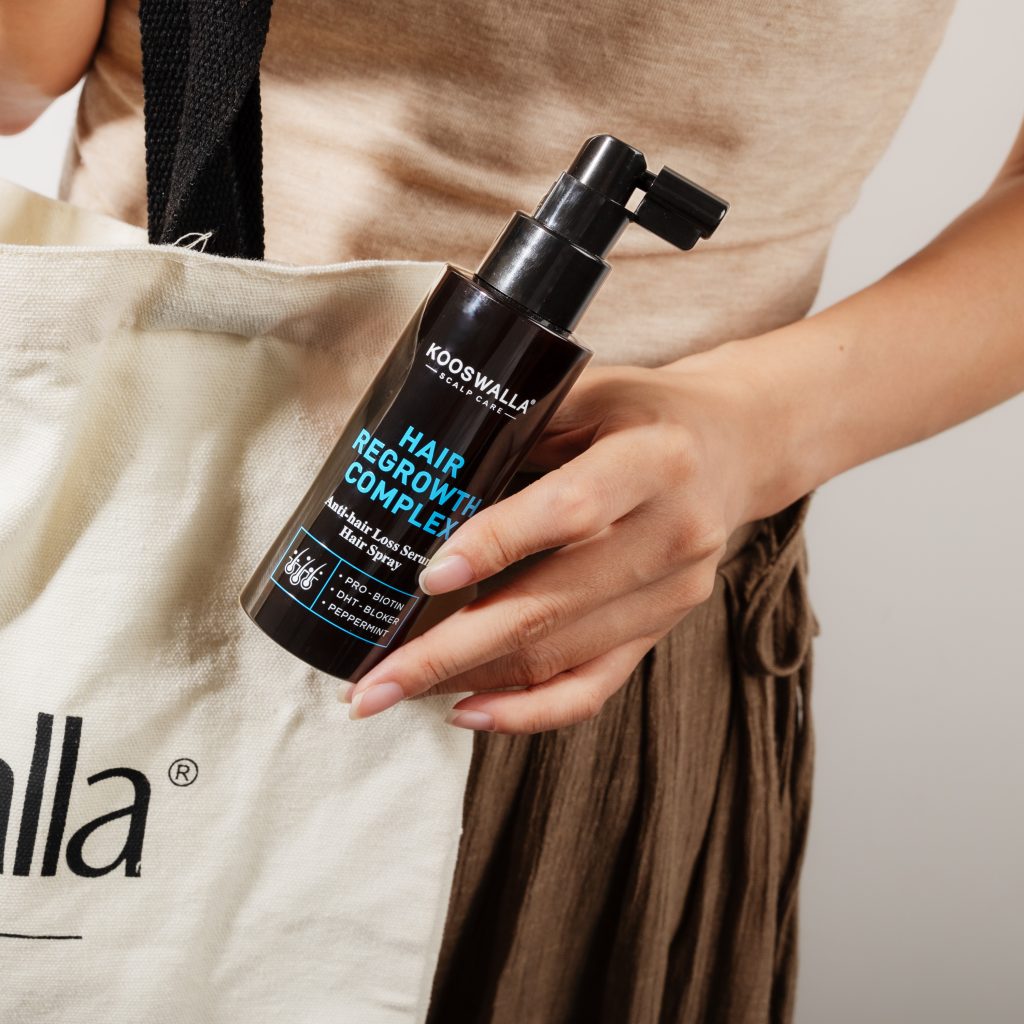
Platycladus orientalis extract: can promote local blood circulation, enhance the metabolic function of hair follicles, remove dandruff, and promote hair regeneration.
Polygonum multiflorum root extract: nourishes the scalp and thickens black hair
Chamomile flower extract: has anti-inflammatory, antifungal, and antispasmodic effects
Menthol: Cools and relieves itching on the scalp.
If you have severe localized alopecia areata,you can try over-the-counter and prescription topical treatments, such as minoxidil, can help stimulate hair growth and slow down hair fall. These should be used under the guidance of a healthcare professional.
Understanding the causes of hair loss and taking preventive measures can go a long way in maintaining healthy hair. If you’re experiencing significant hair loss, consulting with a healthcare professional or a dermatologist is crucial to determine the underlying cause and explore appropriate treatment options. Remember, a holistic approach to hair care involves a combination of lifestyle changes, proper nutrition, and, if needed, professional interventions.
